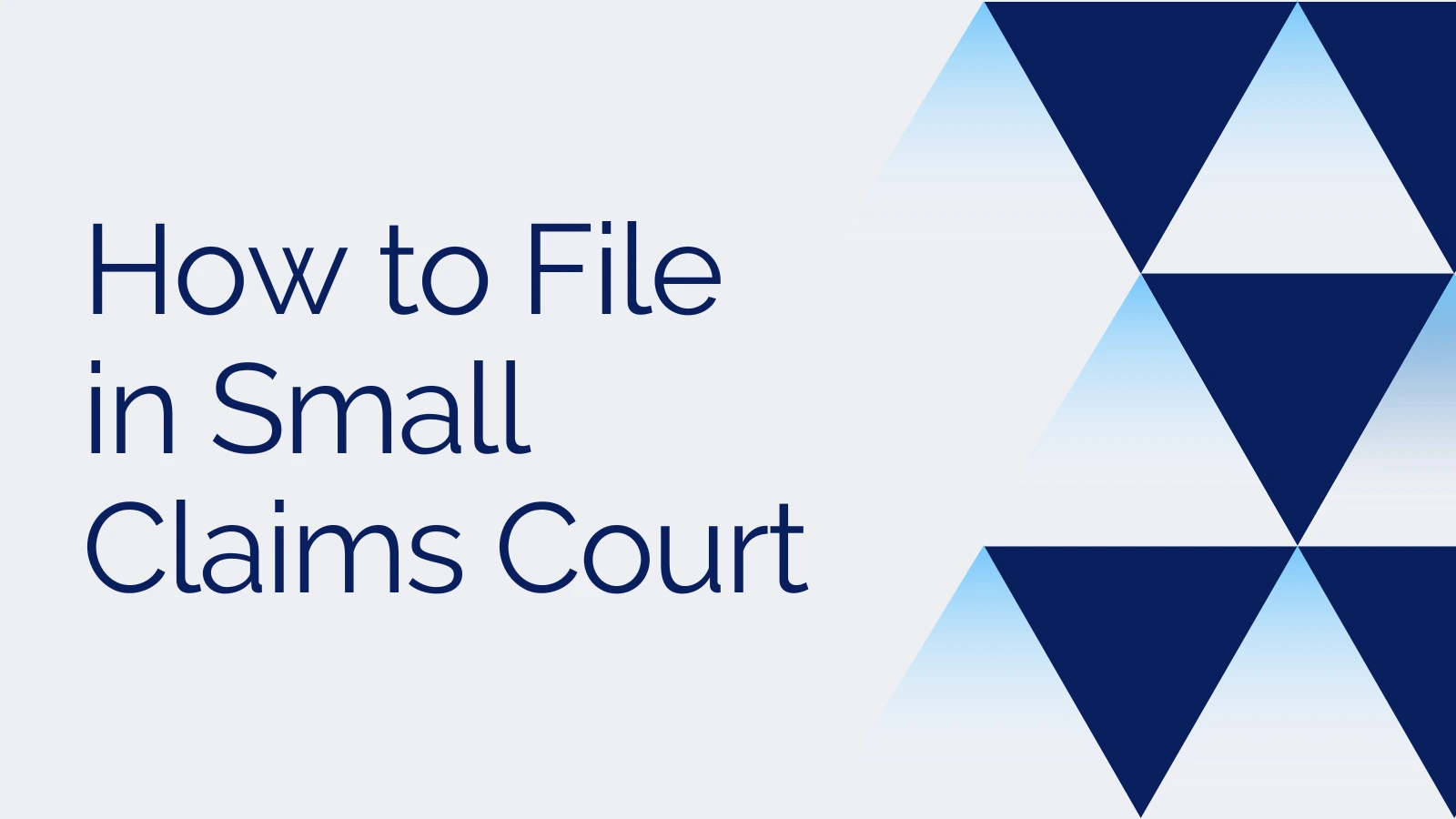How to File in Small Claims Court
Small claims court can be a useful tool for resolving legal disputes that involve relatively small amounts of money. Filing in small claims court can be a more affordable and efficient alternative to hiring an attorney and going through a lengthy trial. However, the process of filing in small claims court can be intimidating for many people. In this article, we will guide you through the steps of filing in small claims court and provide you with helpful tips for a successful outcome.
Understanding Small Claims Court
Small claims court is a specialized court that handles disputes between individuals or businesses involving small amounts of money. The limit for small claims court varies by state but typically ranges from $2,500 to $10,000. The goal of small claims court is to provide an informal and simplified process for resolving disputes.
Determine Eligibility
Before filing in small claims court, it’s important to make sure that your case is eligible. Small claims court only handles civil cases, which means that criminal cases, family law cases, and cases involving federal law are not eligible. You should also make sure that the amount of money you are seeking is within the limit for small claims court in your state.
Research the Law
Once you have determined that your case is eligible for small claims court, you should research the law that applies to your case. This can include state laws, local laws, and any relevant contracts or agreements. Understanding the law that applies to your case can help you present a strong argument in court.
how does small claims court work
Filing Your Claim
Once you have determined that your case is eligible for small claims court and have researched the law that applies to your case, you can begin the process of filing your claim. The specific steps for filing in small claims court vary by state, but generally include the following:
Fill Out the Forms
The first step in filing in small claims court is to fill out the necessary forms. These forms typically include a complaint form and a summons form. You will need to provide detailed information about your case, including the amount of money you are seeking and the reason for your claim.
Pay the Filing Fee
Most small claims courts require a filing fee, which typically ranges from $30 to $100. You will need to pay this fee when you submit your forms. If you cannot afford the filing fee, you may be able to apply for a fee waiver.
Serve the Defendant
After you have filed your forms and paid the filing fee, you will need to serve the defendant with a copy of your complaint and summons. This can be done in person, by mail, or by a professional process server. It’s important to follow the specific rules for service in your state.
Attend the Hearing
After the defendant has been served, a hearing will be scheduled. You will need to attend the hearing and present your case to the judge. Be prepared to provide evidence and testimony to support your claim.
how to win in small claims court
Tips for Success
Certainly, here are some additional key tips also for how to win in small claims court in texas
- Make sure your case is appropriate for small claims court:
- Ensure that your dispute falls within the jurisdiction and monetary limits of small claims court. Small claims court is typically for relatively minor disputes, so verify that your case qualifies.
- Get your documents in order:
- Organize all your documents and evidence in a clear and organized manner. This will make it easier to present your case effectively in court.
- Prepare your witnesses:
- If you have witnesses who can testify on your behalf, make sure they are well-prepared and understand the key points they need to convey. Practice their testimony with them if necessary.
- Practice for your day in court:
- Rehearse your presentation and responses to potential questions. This will help you feel more confident and articulate during the actual hearing.
- Be on your best behavior:
- Maintain a respectful and courteous demeanor throughout the entire court process. This includes interactions with court personnel, the judge, and the opposing party. Being polite and professional can reflect positively on your case.
- Be prepared to go the distance:
- Small claims court cases can sometimes take longer than expected. Be patient and prepared to follow through with all necessary steps, including appeals if required, to secure a favorable outcome.
These additional tips, when combined with the previous steps, can further enhance your chances of winning your case in small claims court.
What happens if you win your small claims case?
The court enters a judgment in your favor
If the judge or magistrate rules in your favor after the hearing, this means you have won your case. The court will enter a civil judgment stating that the defendant owes you money.
You receive a copy of the judgment
You will receive an official copy of the judgment, usually in the mail. This judgment acts as the court’s official order that the losing defendant must pay you the amount awarded.
The losing party is ordered to pay you
The judgment will order the losing party to pay you the dollar amount you were awarded, plus any court costs and interest. In most states, the party has 30 days to pay the judgment voluntarily. If they do so, the case ends there.
what happens if you win in small claims court and they don’t pay
- Demand Payment: Start by sending a demand letter to the defendant requesting payment within a specified time frame, usually 7-30 days. Make sure to keep a copy of this letter as evidence.
- Garnishment: If the defendant has a regular source of income, you may be able to request a wage garnishment. This means that a portion of their wages will be deducted and paid directly to you until the judgment is satisfied.
- Bank Levy: In some cases, you can request a bank levy, which allows you to freeze and then seize funds from the defendant’s bank account to satisfy the judgment.
- Property Lien: If the defendant owns property, you can file a lien against their property, which means they won’t be able to sell or refinance the property without first paying off the judgment.
- Judgment Debtor’s Examination: In some jurisdictions, you can request a judgment debtor’s examination where the defendant must appear in court to answer questions about their finances and assets. This can help you identify sources of income or assets to satisfy the judgment.
- Collection Agencies: You can hire a collection agency to help recover the judgment amount. They will typically take a percentage of the amount collected as their fee.
- Renew the Judgment: Judgments have an expiration date, so if the defendant still hasn’t paid and the judgment is about to expire, you may need to renew it to continue your collection efforts.
- Legal Assistance: If the judgment amount is significant or the defendant is uncooperative, you may want to consult with an attorney to explore your options and get help with the collection process.
The court won’t collect the judgment for you
Keep in mind the court will not take action to collect the judgment for you. As the winning plaintiff, you have the burden of enforcing the judgment and pursuing collection efforts.
Tips for increasing your chances of getting paid
Confirm the losing party’s identity and ability to pay
Before filing your claim, try to confirm the true legal name of the defendant and their ability to pay. Knowing sources of income or assets to potentially seize will aid collection efforts.
Act quickly to enforce the judgment
Don’t delay in seeking to enforce the judgment if the defendant doesn’t pay voluntarily. The sooner you start collection proceedings, the better your chances of getting paid.
Be persistent in seeking payment
Keep pursuing the legal collection remedies available. Be proactive and willing to stick with the process, which can take significant time and effort before you receive the money owed.
Conclusion
Filing in small claims court can be an effective way to resolve legal disputes without the need for an attorney. By understanding the eligibility requirements, researching the law, and following the necessary steps for filing your claim, you can increase your chances of success in court. Remember to be prepared, professional, clear, and concise when presenting your case, and follow all of the rules for small claims court in your state.
FAQs
- Do I need an attorney to file in small claims court?
No, you do not need an attorney to file in small claims court. Small claims court is designed to be a simplified and informal process that does not require legal representation.
- What is the limit for small claims court?
The limit for small claims court varies by state but typically ranges from $2,500 to $10,000.
- What kind of disputes can be resolved in small claims court?
Small claims court handles disputes between individuals or businesses involving small amounts of money. It does not handle criminal cases, family law cases, or cases involving federal law.
- What happens if the defendant does not show up to the hearing?
If the defendant does not show up to the hearing, the judge may issue a default judgment in favor of the plaintiff.
- Can I appeal the decision of the small claims court?
In most cases, the decision of the small claims court is final and cannot be appealed. However, you may be able to file a motion for a new trial if you can provide new evidence or show that there was a procedural error.
6. What types of cases can be heard in small claims court in Texas?
Small claims court handles a wide range of cases, including disputes over unpaid rent, damage to property, breach of contract, and more.






